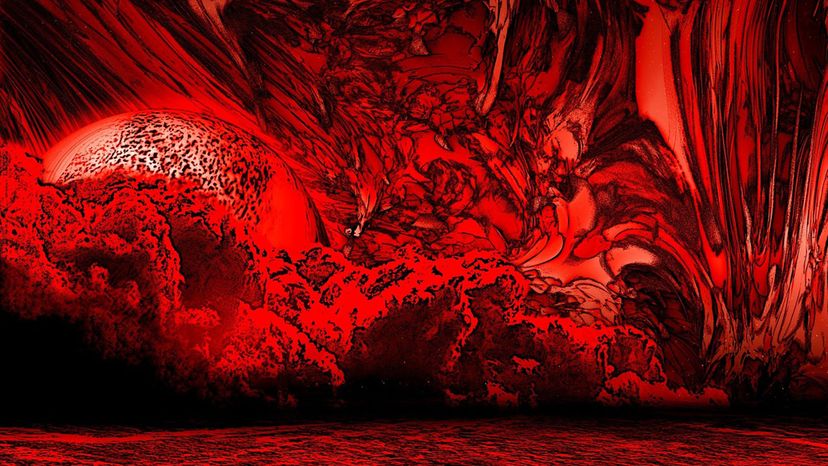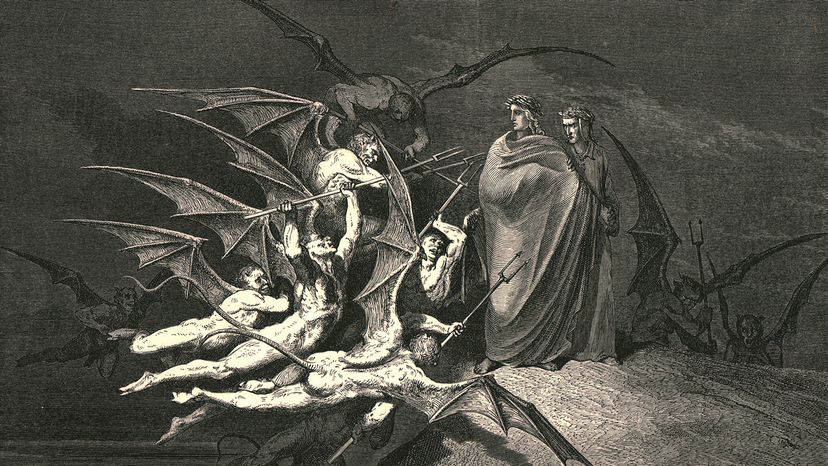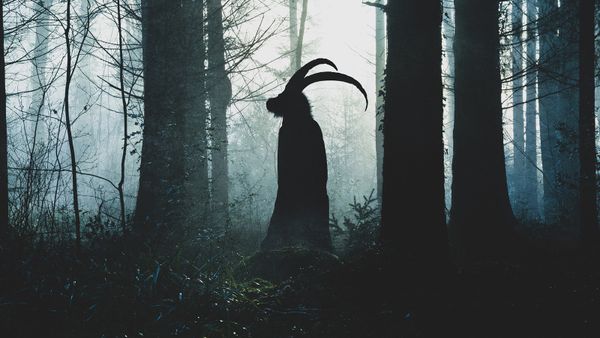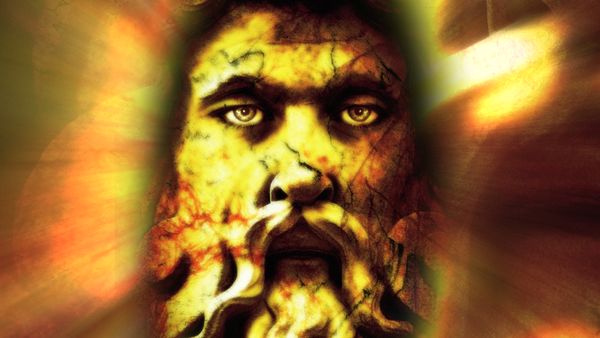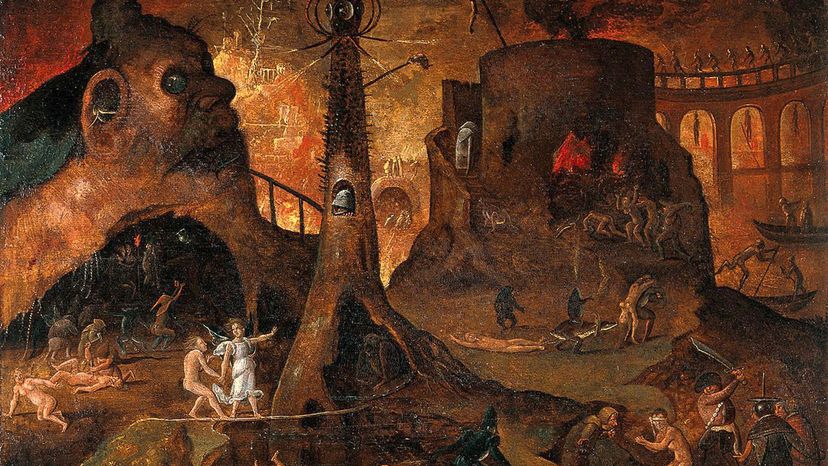
What do you believe about heaven and hell? Even if you're not religious, it's hard to escape the pull of these two opposing fates awaiting mankind after death: eternal paradise and joy in the clouds or eternal damnation and despair in the fiery depths.
The concept of hell is present in many religions ― such as the Mesopotamian religions from the third century B.C.E., as well as in Roman and Greek mythology (Hades, anyone?). Islam, Buddhism and Hinduism all acknowledge the existence of a hell, too. But for the purposes of this article, we'll concentrate on the Judeo-Christian concept of hell. Where did our collective Western image of hell come from? And has it always been the same since the very beginning?
Advertisement
Not at all, says Jeffrey Trumbower, a professor of religious studies at St. Michael's College in Burlington, Vermont and author of "Rescue for the Dead: The Posthumous Salvation of Non-Christians in Early Christianity."
"There's hardly any conception of the afterlife in the Hebrew Bible," says Trumbower, referring to the books that largely comprise the Old Testament in Christianity. Compared to the ancient Egyptians, whose 'Book of the Dead' and 'Book of Gates' present robust visions of what awaits us after death, the people of Palestine hardly gave it a thought.
In rare passages, the Hebrew Bible gives glimpses of Sheol, the Hebrew underworld, as a dull shadowy existence, a neutral storage place for all of the dead, both good and evil. In the book of 1 Samuel 28:7-24, for example, a troubled Saul wants to speak to the dead prophet Samuel, so he consults a witch or medium who can summon the dead.
For Trumbower, it's striking that Samuel, "a great prophet and certainly a righteous person," was not living in some kind of heavenly paradise, but instead grumpily arose "out of the earth" as if he'd been awoken from a long nap. In the ancient Hebrew imagination, Sheol was a single dumping ground for all the world's dead.
So where do we first get the idea of divine judgment, of God separating the good from the evil and sentencing them to opposing fates? The earliest biblical mention is in the book of Daniel 12:2 written around 165 B.C.E., in which the prophet is given a vision of the Day of Judgment.
Rather than a neutral afterlife, Daniel gives us the first description of what historian Alan Bernstein calls "moral death," where your eternal fate depends on how you lived your life. Trumbower says that by the first century C.E., the idea of a final judgement where God metes out different rewards and punishments was widespread within Judaism.
"When you have the Jesus movement [Jews who decided to follow Jesus], they're already steeped in this kind of stuff," says Trumbower.
Advertisement
